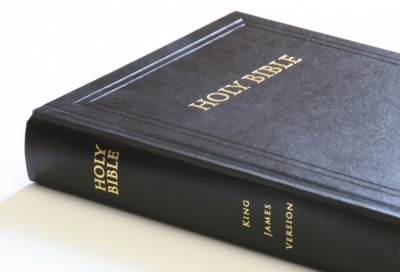What Misapplication of Scripture Looks Like

I used to wonder what it was like during the days of the Inquisitions when the Church wielded political power and, as we now acknowledge, misapplied scriptures to purge the so-called heretics for failing to "obey" the laws of the de facto church-state. I could not understand how in those dark ages the apostolic authority claimed by the leaders of the Church caused them to misinterpret the bible and make laws to suit their sociopolitical ideologies and excuse their moral atrocities.
I used to wonder, too, what it was like during the days of slave ownership in America when the scriptures were misapplied to justify the dehumanizing practice of slavery. I could not understand how during slavery the Church became complicit with the misinterpretation of scripture to say that the slavery practice then was approved by God, and "slaves should obey their masters."
And, I used to wonder what was going through the minds of those who misapplied scripture to justify the resistance to desegregation in the days of the American Civil Rights movement. I could not understand the theology that misinterpreted scripture to claim that it is God's purpose to keep the "races" separate, and to suggest that it violates God's law to encourage integration, or that one race is inferior to another.
Then the Attorney General of the United States of America misapplied scripture to justify his policy of separating children from their parents who come to this country seeking asylum. And now, I no longer wonder. Now I understand.
I understand the wisdom of the Framers of the Constitution in ensuring that the document was not based upon the Christian religion, or any other religion. They had seen and experienced the abuse of power that can metastasize from the union of religion and politics. They must have recognized the danger of religious zealots imposing personal beliefs that may be morally abhorrent, upon society.
I understand that those very Framers wanted a separation of Church and State because people have different interpretations of biblical imperatives and God's laws, and how those imperatives and laws are applied. They could not afford the laws of a nation to be subject to interpretation based upon the caprice of a few individuals and their religious beliefs. They knew there were no guarantees that religious laws would be the appropriate foundation of jurisprudence for a nation with many religions and beliefs.
The AG, Jeff Sessions' assessment that separating children from their parents is justified because Paul says in Romans 13 that it is God who establishes governments, and that the people should submit to their authority, is testimony to the Framers' prescience. It also highlights the legal slippery-slope of an asynchronous application of biblical edicts without regard to biblical context.
Sessions claimed that he was justified in separating children from their parents at the border because they were lawbreakers, and he was only following the law and, for that matter, had the backing of Romans 13. Forget, for the moment, that the new policy of separating children from their parent was never a US policy for asylum seekers, who are in fact, not lawbreakers. Taking the AG's claim at face value reminds us of the strict interpretation of Judaic laws that elicited a rebuke from the Law Giver. Jesus accused the religious leaders of hypocrisy for being sticklers for the minutiae of the law but "have neglected the weightier matters of the law: justice and mercy and faithfulness" (Matt 23:23).
Where are those virtues evident in this policy?
Jesus also allowed his disciples to pluck and eat corn on the Sabbath (Luke 6:1-9). When accused by the religious leaders that it was unlawful to do, Jesus reminded them that David and his hungry band also did what was unlawful by eating food that was only meant for the priest according to the commandments. Then Jesus went on to do what was unthinkable on the Sabbath to those religious leaders, by healing the sick. In doing so Jesus asked them "is it lawful on the Sabbath to do good or to do harm, to save life or to destroy it?"(9).
Is this policy doing good or destroying families?
Sessions seemed to have claimed a law that does not exist, which is to declare that those seeking asylum are criminals subject to criminal punishment, thereby triggering his newly enacted zero-tolerance policy that results in separating children from parents. Therefore, his misapplication of Romans 13 is a politically selective and personal interpretation of scripture.
The use of particular religious scriptures to justify any social, political, or judicial action in a diverse nation is inherently fraught. Here, equity is balanced on a razor's edge. But we run the greater risk of religiously motivated tyranny when scripture is misapplied, intentionally or not, to further those actions; something not unfamiliar in many parts of the world.
I used to wonder what it was like for those living through times when the church wielded political power and misapplied scripture to further misguided and morally questionable policies. Not anymore. I could not understand how it was that the church would allow the atrocities of those days to stand. I understand now.
There are those who say this is the best Administration for the church, ever. God ordained, approved, and installed. A miracle. Does this look like God's work and ways? Does it look like scripture? Does this look like there is concern for defenseless children? Does this look like compassion? Does this look like love, or mercy, or justice?
It does not look good for the Church. It does not look good, and it does not feel good. It feels wrong. It feels so wrong. What is next?




























